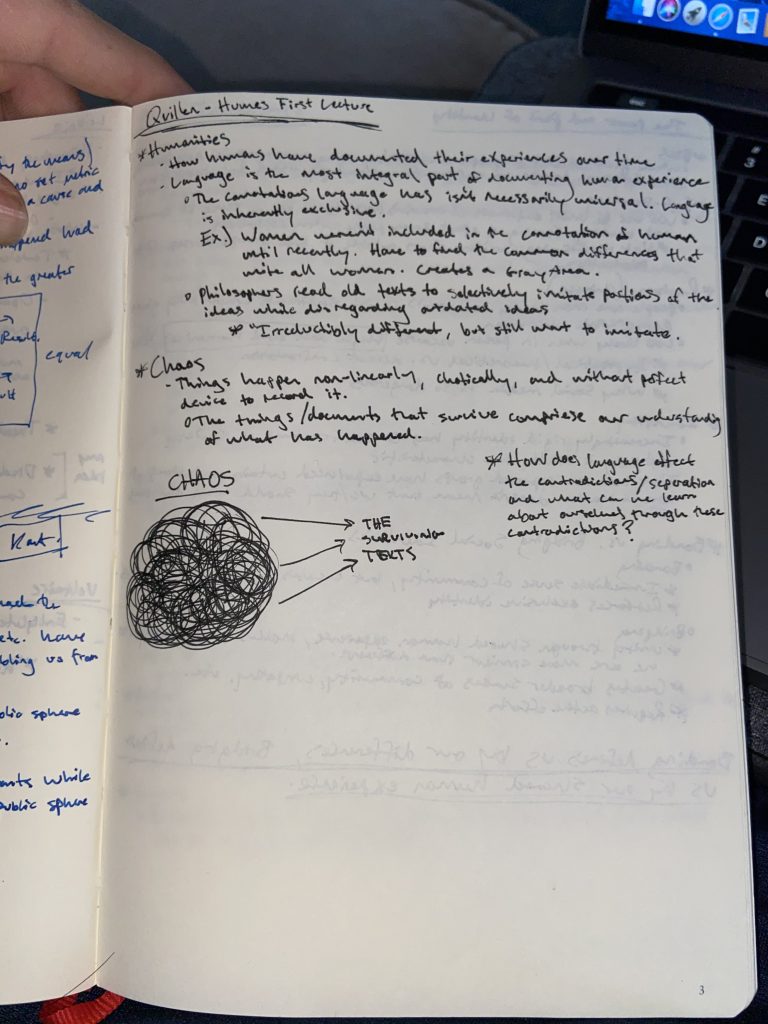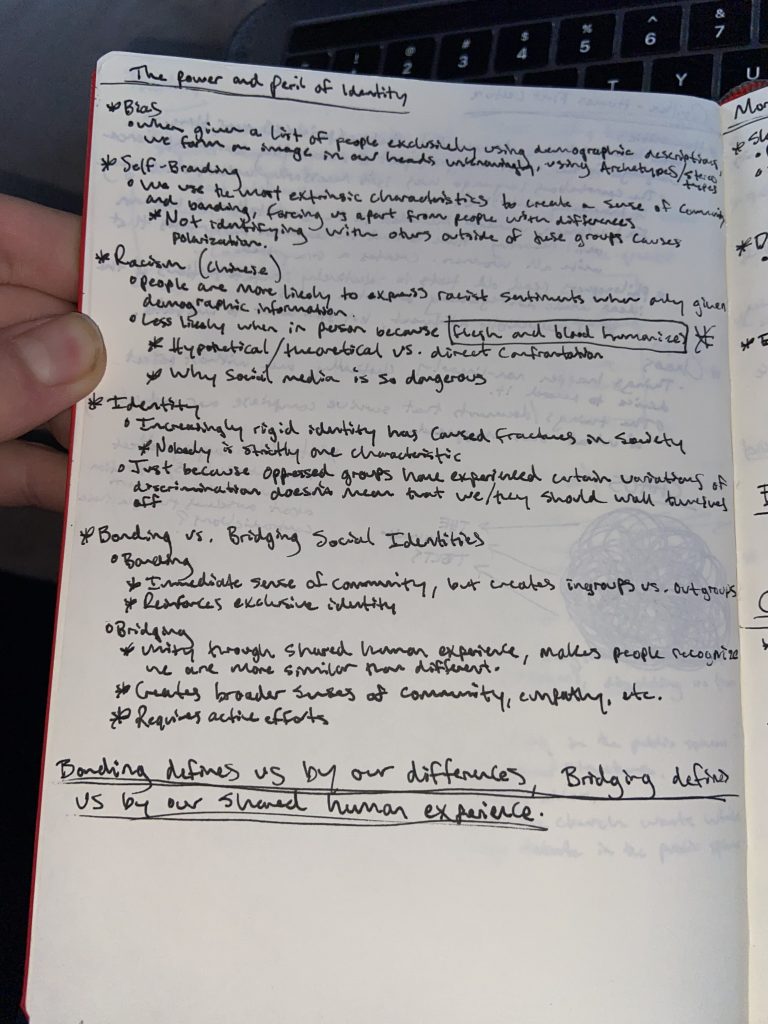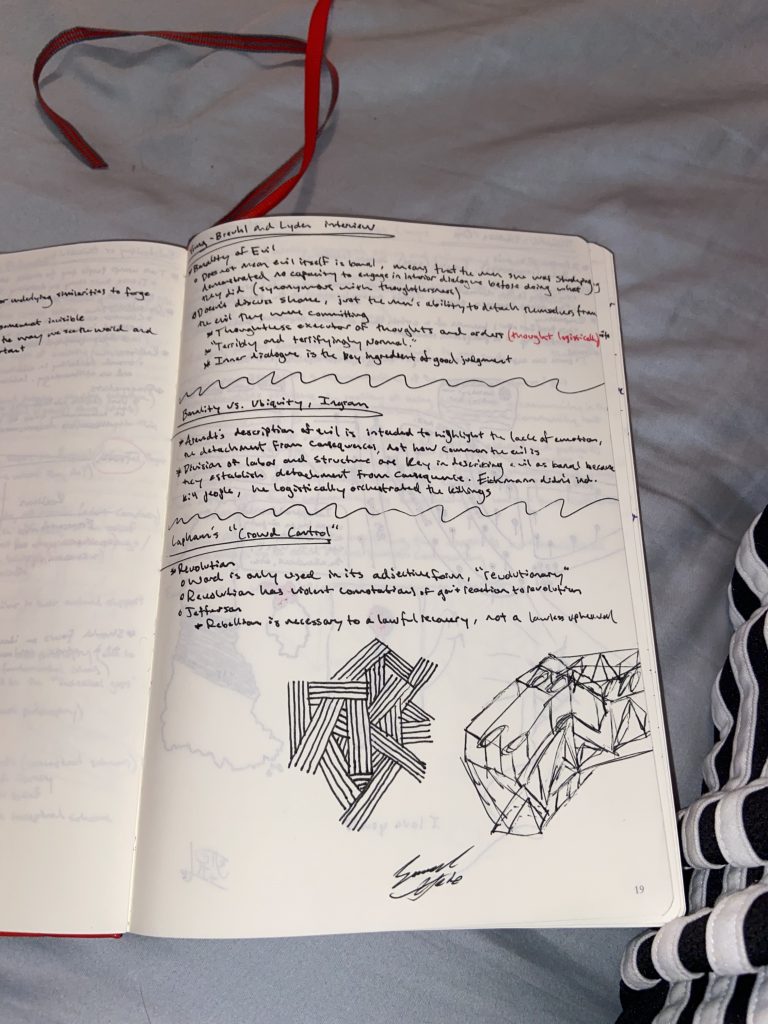In order to define the following terms, I will employ a cluster definition. In other words, I provide a list of characteristics descriptive of the word and solidify a concept in the reader’s mind of what the term is.
humanities: the study of universal and individual human experience and how they are connected.
In Professor Quillen’s first lecture, she said that the humanities is defined as “how humans have documented their experiences over time.” This definition depends on a few different things. First, it depends on who we define as human. Slaves in colonial America were only considered 3/5 the value of a human, excluding them from the broad spanning scope of the humanities. This definition also depends on the language that is used to document the experiences. As Professor Quillen mentioned in her second plenary lecture, our language confines people into rigid identities that change our conception of how we view groups of people. The way our language changes over time is telling of how our conception of what it means to be human changes as well. In this sense, humanities can also be defined as what connects all humans together over time.
Professor Robb’s unit added more nuance to our definition of humanities. We discussed how different conceptual schemes can dictate our perception of events and ideas, creating varying human experiences. In this sense, humanities can also be the study of what divides humans as well as what connects them. Professor Tamura’s unit provided more context for our definition of humanities with her discussion of how we are all corporeally connected by our own mortality. We are all destined to die, which is one of the uniting factors of the human experience. Finally, in Unit 4, we discussed how the American conception of what it means to be human changed with the civil rights movement. The installation of barriers put in place by segregation created a concept of humans being divided whereas the ensuing case of Brown v. Board and others like it created a concept of humanity as being unified. Professor Bory’s unit focused on how we document the human experience through dance, a foreign concept to me but one that I gained appreciation for throughout the unit. Unit 6 with Professor Munger detailed the humanitarian and scientific characteristics of abstract art. By focusing on both aspects, the individual experience when viewing art and the universal psychological processing, this unit taught me how two seemingly opposed fields of study can collaborate to give a broader understanding of the human experience.
Humanities: a series of seemingly unconnected lessons that eventually creates a broader understanding of the world around us.
Humanities, with the big H, is the class embodiment of the ‘humanities’. I am a student in Humanities. In specific application to Davidson, the big H is also somewhat of a community. Pretty much anywhere I go on campus, I’m guaranteed to know at least one person because of Humes, which gives a sense of comfort in such a volatile period of life.
Big H Humanities might seem to make no sense to someone who sits in on one class or even a few. There is a greater goal that the class tries to achieve beyond trivial knowledge. It’s an ongoing conversation intended to expand our minds and make us more critical thinkers.


